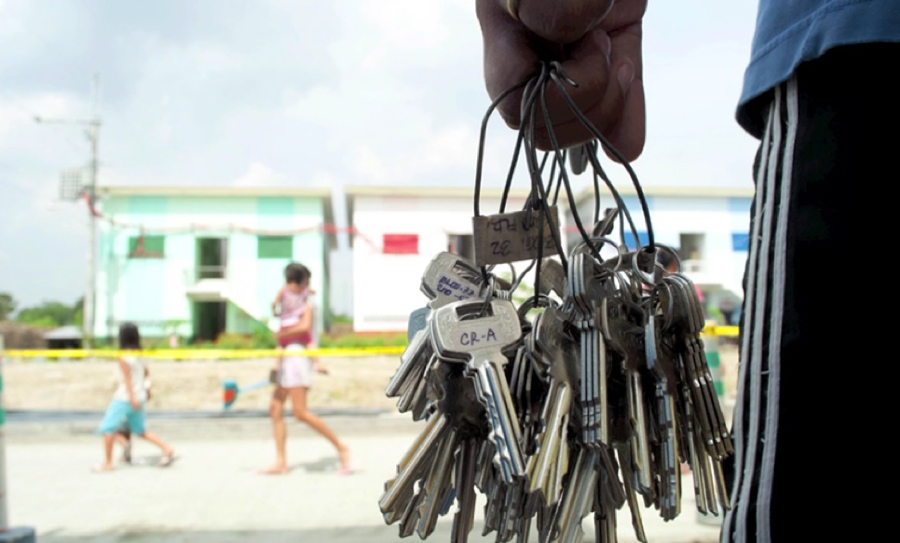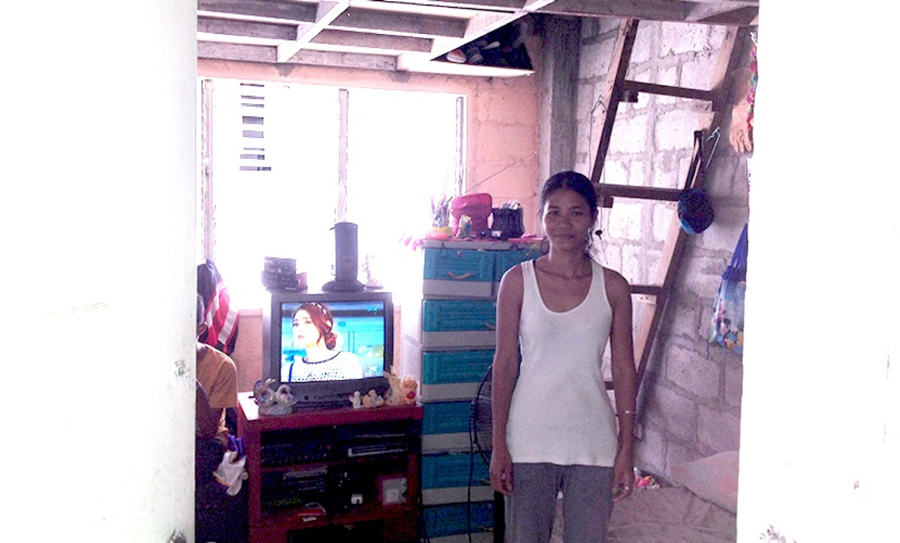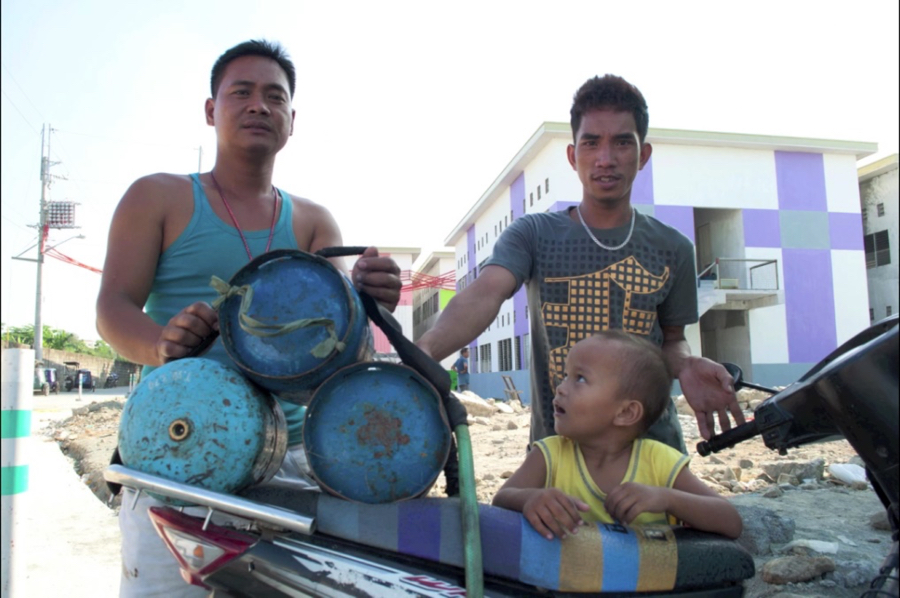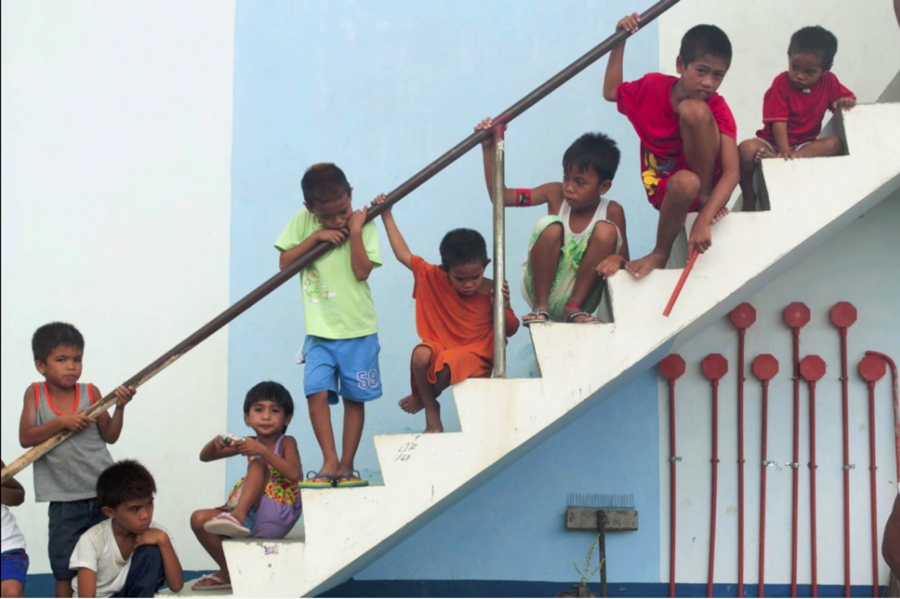
For decades, thousands informal settler families or ISFs have been living in designated danger zones near the creek and waterways near Tullahan River.
Sanita Yungco, a resident along a creek in Paso de Blas for eight years, said garbage and human waste as well as access to clean water had been always a problem for families living near danger zones as it causes sickness and diseases.
“Marami pang polusyon at basura na dumadaan sa ilalim ng bahay namin kaya mabaho at marami nagkakasakit,” Yungco said.
“Pati ‘yung tubig talaga sa ilog madumi. Kaya nag-iigib kami sa bombahan. ‘Yung iniigiban pa mahal ang bayad at mahaba ang pila kaya kapag naligo kami tipid talaga,” she added.
During rainy seasons, Yungco’s family always had a fear of being washed away along with the flood when water overflows and invades their poorly-built shack.
“Minsan ‘di ka rin makatulog sa gabi kasi baka kasi tangayin na ng baha ‘yung bahay mo at hindi ka na lang magising,” Yungco said.
Even after the flood subsides, Yungco’s family would return to her home to fix shambles and prepare for the next adversity.
Such environment, the 33-year-old mother recalled, greatly affected the education and well-being of her two children.
“Bukod sa minsan nababasa ang mga gamit nila sa eskwela, minsan hindi rin sila nakakapasok para tulungan kaming ayusin ‘yung bahay kasi tagpi-tagpi lang din ang tirahan namin kaya madaling masira,” Yungco said.
“Kaya kapag may baha, takot din talaga kami baka kasi matangay nga ‘yung bahay. Minsan naawa na lang ako sa kanila dahil wala talaga kaming magawa,” she lamented.
Her fear then was realized in September 2009 when typhoon Ondoy devastated Manila, which left 464 dead and caused P11-billion damages to infrastructure and agriculture.

Relocation to Disiplina
Three months after Ondoy hit the country, the local government of Valenzuela City opened a 1.9-hectare relocation community project in Barangay Ugong called “Disiplina Village” for those who were displaced by the calamity.
Former Valenzuela City mayor, now Valenzuela City Congressman Win Gatchalian partnered with Gawad Kalinga Community Development Foundation and other non-government organizations or NGOs to design a low-cost yet decent housing model and pool enough fund for construction materials.
Gatchalian was also able to convince San Miguel Foundation or SMF to donate P45 million for the construction of 300 units for victims of typhoon Ondoy as part of their corporate social responsibility ventures.
Yungco’s family was among the ISFs that occupied the first 22 two-storey housing units that were opened in 2012.
“Noong nakita kasi ni Mayor Win ang sitwasyon namin at iba pang na-wash out sa Ondoy sa tabing-ilog hindi na talaga kami pinabalik ni mayor dahil delikado daw,” Yungco explained.
“Kumpara sa dati, mas okay talaga dito. Sementado at matibay. Kapag bumaha hindi rin umaabot ‘yung tubig. Atsaka dito sa pangalawang palapag kami kaya safe na safe. Gusto rin ng mga anak ko dito kasi malinis tapos hindi mabaho,” she expressed.
Following the release of P10 billion to accelerate the relocation of some 104,219 ISFs residing along danger areas all over Metro Manila in the same year, Gatchalian then collaborated with National Housing Authority or NHA to construct another 17 three-storey buildings in Disiplina Village-Ugong. The project helped a total of 890 families to find a new home.
Under the NHA’s five-year relocation plan, the local government of Valenzuela City also initiated another Disiplina Village project in 2014 in an 11-hectare land in Barangay Bignay to construct 89 low-rise buildings.

Integration after relocation
The Disiplina Village, which is now the biggest in-city low-rise building relocation project by a local government unit in the country, is set to relocate around 3,420 families in 2016 from communities along Tullahan River and other waterways in Valenzuela City.
Aside from being near key establishments, the two Disiplina Village have its own multi-purpose covered court, daycare center, health center, and livelihood training center inside the community.
The 33-year-old housewife said she and her husband was able to continue her work in collecting and trading metals after they relocated to Disiplina Village.
“Ang asawa ko naman patuloy pa rin sa trabaho niya sa pagsama sa trak ng basura. Nasa Valenzuela City pa rin naman kasi itong nilipatan natin. Tapos ginagawa din po namin kapag gabi nangangalakal din kami,” she explained.

Disciplined tenants
To live up to its name, the local government of Valenzuela City devised a Home Space Agreement and other strict rules in the community after learning from the failure and flaws of similar LGU-initiated housing programs, where the units immediately collapse.
The yearly agreement compels residents to take care of the units; maintain good relations with the neighbors; and comply faithfully with their financial obligations.
The village is also a recipient of Department of Agriculture’s or DA “Techno-demo Farm Project,” which teaches farming practices to individuals and give them additional ways to earn income.
Families living in Disiplina Village lease the units at a minimal cost of P300 monthly, which is very low compared to average going rate for rental of a unit of the same floor area, which at about P3,000 to P4,000.
Tenants also pay for their own water and electric supplies, which comes from Maynilad Water Services Inc. or Maynilad and National Power Corporation or NAPOCOR, respectively.
The housing project also aims to change the beneficiaries’ perception of themselves as typical “squatter” to “homeowner” attitude; from “walang pakialam” to “may pagsasamahan”. (Tim Alcantara)


